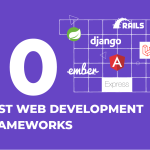Do you want to succeed in running your business and make it more efficient? If so, you definitely need to develop efficient accounting software. With the software of the kind, businesses streamline the following operations: financial transactions, cash flow tracking, tax calculating, internal auditing, business analysis and reporting. How to create a custom accounting solution? Read on to learn.
Who Needs Accounting Software?
Nowadays, it’s mostly a rhetorical question.
In the world of market relations, any company or a social community has to deal with finance to a greater or lesser degree, and, consequently, any company needs financial accounting software. The point is that they need completely different types of programs.
Accounting software is developed on the basis of specific needs and goals. Solutions for business should help reduce human resources cost and increase overall productivity. Startups adapt accounting programs to boost competitive advantages in order to develop into mid-size and large companies.
Bookkeeping programs for nonprofit organizations should fit their unique requirements. For example, church accounting software performs such financial tasks as tracking the donation activity, managing the budgets of separate projects, monitoring the financial health of different campuses. Real estate accounting programs track financial data, help manage properties, spot delinquencies by running reports and provide information to investors and owners. The software should be simple and clear for non-accountants, as they are likely to use these programs.
Thus, every accounting software is an integrated information system filled with industry-specific features.
Develop your custom software with SaM Solutions’ engineers, skilled in the latest tech and well-versed in multiple industries.
Types of Accounting Software Solutions
It is extremely important to choose the right solution to benefit from it. For example, accounting software for small business can hardly fit a large enterprise and vice versa. We can differentiate the accounting software depending on the:
Depending on Scale and Complexity of Business
Spreadsheets. Programs such as Microsoft Excel or Google Spreadsheets are able to perform the simplest of tasks: produce accounts, calculate data, make lists, analyze information and check for errors. They are suitable for very small and simple businesses. Their main weaknesses are the human factor dependency (so error elimination is not guaranteed) and the absence of flexibility (the number of spreadsheets will grow with your business and you risk “sinking” in them).
Commercial Accounting Software. This type is good for small and mid-size companies. Commercial programs are developed by professionals and can handle most of the accounting needs. Solutions such as Peachtree or QuickBooks have the following advantages:
- Provide seamless access to your data from any device and location
- Draw up reports automatically — more convenient for your accountant
- Several people can access data simultaneously
- More convenient for auditors
- Due to updates, it is much easier to follow changes in the law
- Tax preparation is easy
- Sending reports, invoices and payments to customers and vendors is easy
- They are scalable
Enterprise Accounting Software. Large enterprises work with an enormous amount of information and their accounting programs should manage to process it. Solutions for large organizations perform not only accounting tasks, but also integrate other services such as business intelligence, project planning and workflow management.
Depending on Type of Development
Off-the-shelf software. This is a packaged, ready-made product with standard functionality that is available to the general public. It can be easily implemented into an existing system without customization. Such a general package fits many — but not all — businesses.
Pros:
- Lower initial price
- Included support and maintenance
- Free upgrades may be provided
- Extended functionality
Cons:
- A sophisticated system
- Some features you may never use
- Not flexible to industrial needs and market changes
- To fit the program, you may probably need to change your processes
- No competitive advantages, as your business rivals either use the same software (and you are in the same boat) or develop customized programs (and leave you behind)
Custom software. Standard solutions cannot fully conform to the needs of any company, as all the processes are specific and require personal settings. The best way to get customized software is to outsource services. Turn to an experienced provider for your own accounting software development and you won’t regret it.
Pros:
- High automation
- An easy-to-use system
- Efficient functionality tailored to your exact requirements
- Fast response to changes
- Flexibility (quick modifications are possible)
- Competitive advantages
Cons:
- High initial price
- Higher risks
- Continuous dependence on the develope
Depending on Type of Hosting
On-premises. This is an out-of-date way of data storage that is costly, inconvenient and unreliable. The program works only on the computer it is installed. People cannot access the data simultaneously. Customer support and upgrades are expensive and time-consuming.
Web-based. The information is hosted on the remote servers and the functionality is delivered through the web browser. Anyone who has an Internet connection can access the data via PCs or mobile devices. Web-based accounting software is convenient and effective. You can build a web-based accounting system using diverse technologies, frameworks and CMS solutions.
Cloud-based. This type of hosting is the most scalable and cost-effective. It provides online accounting and allows owners to access their data anytime and from anywhere via the Internet. Build a cloud-based accounting software or software as a service (SaaS), and you will work on a subscription basis without any hardware or software installation.
Key Stages of Accounting Software Development
Any development process goes through several stages to get the final product stage. Custom accounting software should be built on the basis of business requirements, starting with the core essential features and considering other functions that can be added later at any time. Let’s discuss how to make accounting software in more detail.
Consulting and research
Everything starts with consulting. A provider should listen to a customer and ask questions in order to understand current processes and needs. Further research of the business system will reveal its drawbacks and provide ideas about its improvement and customization. If the provider is ready to create a custom solution, it proceeds to the next stage.
Designing and planning
Any software project should be accurately planned and designed. At this stage, a provider in cooperation with a customer and employees (this is very important) should discuss issues such as user needs, possible risks, ROI, technologies and methodology. As a result, together, they will be able to draw up a budget, sketch out the workflow and create a design.
Prototyping and development
When a clear strategy and design are ready, the prototyping and development process may begin. This is the most complicated, expensive and crucial moment. At this stage, the design is converted into a functioning system. The developers write and compile the code, install necessary environments, prepare test cases, integrate all the features and refine the program. Today, following modern tendencies, most providers make use of the DevOps concept that implies continuous integration, testing and delivery. This means that the software is built incrementally, beginning with the essential features. Due to this methodology, the final product is always well-designed and fully tested, so a customer can quickly adapt it and gain unique competitive opportunities in the market.
Release and support
In cases of frequent market fluctuations and tense competition, a project can never be fully completed. It is released, implemented into a production environment and starts operating, but the work on the project goes on. Thus, a custom software provider becomes your long-term partner performing post-implementation and in-process reviews. It maintains the system, keeps it operational, supports its efficiency and delivers updates in accordance with evolving requirements.
How Much Does Custom Accounting Software Development Cost?
The cost of accounting software development depends on various factors:
- The number of features included
- The number of users supported
- Scalability
- Time limits (the quicker it should be developed, the more expensive it will be)
- Security (a system with a simple log/pass is cheaper than with multi-level security)
- Training (the vendor may offer initial or comprehensive training courses to teach your employees how to use the program and the price may vary accordingly)
- Maintenance and support (the cost of technical support, hardware or software maintenance is also included and usually comprises 15-25% of the total project cost)
As we see, no vendor is able to estimate the accounting software cost without finding out the specifications for your project.
The price range may depend on the custom development company as well.
| Small class development companies | Moderate class development companies | Extra-class development companies | |
| Employees | up to 10 | dozens | hundreds |
| Rate per hour | $75 – $180 | $100 – $200 | $400 – $800 |
| Average project cost | $3,000 | $15,000 | $500,000 |
| Project cost range | $1,000 – 10,000 | $7,000 – $150,000 | $100,000 – $1 000,000 |
| Clients | small-budget businesses with simple projects | mid-size businesses with more complicated projects | large businesses with lots of extra money |
Real Use Case
Modern custom accounting software is a go-to tool that tracks your financial metrics and makes your business run seamlessly. There’s a wide choice of accounting solutions that may fit your requirements both in quality and in price. The large gap in the development cost ($1,000 – $1 000,000) is explained by the complexity of projects, different goals and needed features, and the vendors themselves.
SaM Solutions is a reliable IT-services and software provider. It has a wide experience in custom application development, including accounting solutions. For instance, our team developed such an accounting solution as LexLive — an online application providing rich user experience and advanced features for invoice preparation and management. It enables generating invoices and managing the entire accountancy via the Internet, and offers qualified assistance in various finance-related situations.
Share your ideas with SaM Solutions and together we will create the best services to help you achieve maximum results.



























 5 Reasons Why Your Business Needs a Mobile eCommerce Application
5 Reasons Why Your Business Needs a Mobile eCommerce Application Using Salesforce to Improve Your Sales Pipeline: Five Tips
Using Salesforce to Improve Your Sales Pipeline: Five Tips Cross-Platform Mobile Development: Five Best Frameworks
Cross-Platform Mobile Development: Five Best Frameworks How to Develop Custom Accounting Software
How to Develop Custom Accounting Software 10 Best Web Development Frameworks in 2024
10 Best Web Development Frameworks in 2024










